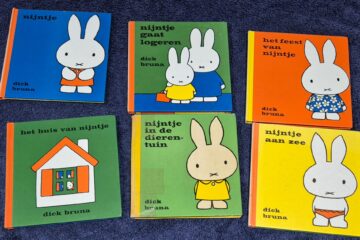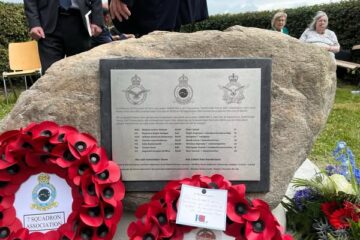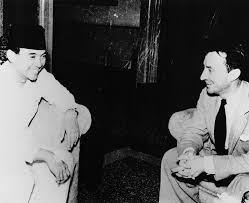The Club was initially known as the ‘Netherlands Society Abel Tasman’ and first opened its doors on the 1st November 1958 in Barkly Street, St Kilda.
The Club changed its name on the 30th October 1978 to its present name of Dutch Club ‘Abel Tasman’.
The Club organises several activities and in recent years has also become an umbrella organisation for other groups. Sub-committees/groups include the Dutch Australian Heritage Centre, the Erasmus Foundation and Carnegie Hall (Saturday nights live music).
Aim and mission statement
It has always been the aim of the Dutch Club to unite the Dutch community, to support each other wherever possible and work together as a team. It hasn’t always been easy, however the resilience of the Club is symbolic and reflective of the spirit of the Dutch character. It is still the Club’s mission statement of today and they are hoping to continue its legacy for many years and many events to come.
Our vision is that Dutch Club Abel Tasman is the place to be for Dutch events.
Summary
That was the very beginning of the Club and its members. It hasn’t been an easy run, for the Club has survived raids and even a fire in 1980, after which the members of the Dutch community rebuilt the Club. It shows the spirit of the Dutch Club Abel Tasman and its members: resilience, community and an ability to adapt. Symbolic for the character of the Dutch, including the Dutch Courage!
History
The premises at Barkly street – that has been used since 1958 became too small and the Club temporarily moved in February 1970 to premises at 16 Dickens Street, Elwood. This building was formerly known as the cabaret club ‘Moulin Rouge’.
Finally the Club relocated to the current premises at 60 Rosstown Road in Carnegie! The official opening was on Saturday 8th December 1972. The Club opened its doors to many sub-clubs, for example a Bridge Club, Klaverjas Club, Biljart Club, Table Tennis Club, Dam Club, Jokers and the Soccer Club.
On 24th November 1973 the Club celebrated its 15-year history. This day marked the 332-year anniversary of sailor/explorer Captain Abel Tasman having set foot on Australian soil. Among its achievements during 15 years of establishment was membership of over 300, the purchase of its very own premises, establishing the Club as a non-profit organisation and many more. The band for the 15th anniversary was ‘The Jantjes’ which is apt as in Dutch ‘jantjes’; is the nickname for a sailor.
The Club enjoyed a time of great popularity and regular full houses.
Bad luck struck on 28th September 1980 when the Club suffered from a fire which started around 4am. It took 15 firemen and 25 minutes to contain the fire and part of the Dutch Club was burnt to the ground. Thanks to a select group of members the Clubrooms were rebuilt. It took many long hours, many generous pockets and dedicated volunteers and the Club was erected again with its large dance floor, spacious seating and fabulous bar. In 1981 a kitchen was started up by Paula and Theo Derks and hot snacks were made on a portable gas cooker, white rolls, coffee and tea were also available.
The Club was officially reopened on the 18th of June 1982 and it was a celebration of its uniqueness since it was one of the truly multi-cultural clubs in Victoria in the post war era. The Club can boast a membership of not only Dutch but many Australian, Greek, English and many other nationalities. The people who helped rebuild the Abel Tasman came from all cultures and walks of life. The Club once again slowly grew and in 1987 it had a membership of 550.
The Abel Tasman is in a very good location – in November 1998 the building was valued between $220,000 and $260,000. Now it is worth many times that. Time can make a big difference.
In 2006 a new committee was formed with Roel Rolleman as President and Michael Gijsberts as the Vice-President. The new commitment made was to preserve the Club for the generations to come. Funds were borrowed from the Association in order to refurbish the whole building. The result is a new bar, kitchen, dance-floor, sound system and multiple screens to show sporting events. The showing of the 2006 World- and the 2008 European Soccer Cups were a great success, even though the games were aired in the middle of the night!
Also in 2006 the Association’s ‘Koninginnebal’ was held at the Abel Tasman and a ball to celebrate the birthday of the Dutch monarch, whether king or queen, has now become a yearly tradition.
Update 2022
The Football Club
Among its various sub-clubs, Abel Tasman hosted a soccer team that competed in Melbourne’s local leagues. Records show that a team named St Kilda Abel Tasman played in Victoria’s Metro League Division 4 in 1965. The club recorded some strong early results that year, including 8–1 and 5–2 victories, highlighting its competitive spirit and the enthusiasm of the Dutch migrant community for football.
While in later years the club focused more on social, cultural and recreational activities, such as bridge, table tennis and regular community events, during the 1960s Abel Tasman played a valuable role in promoting Dutch football traditions in Victoria and providing a sporting home for Dutch migrants in Melbourne.


